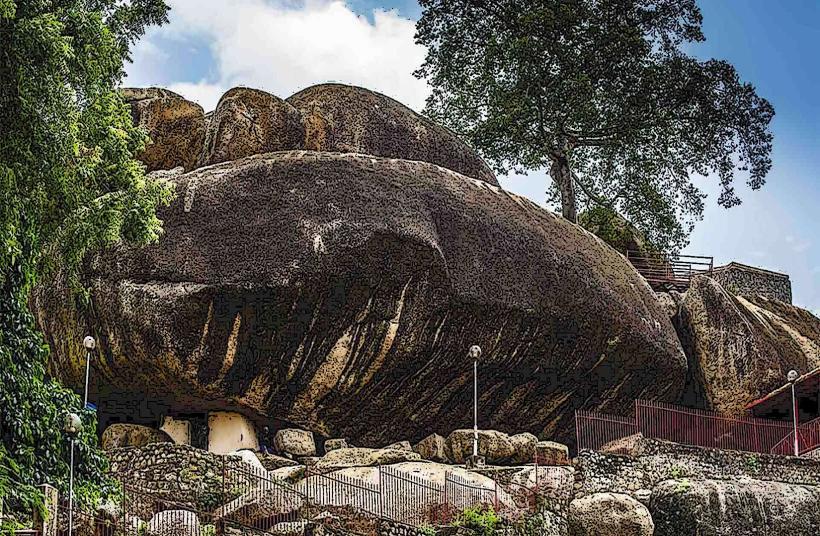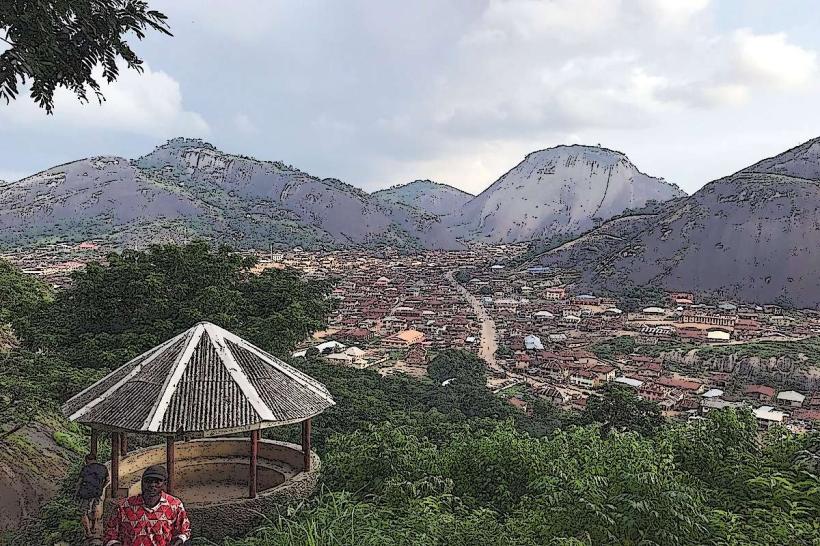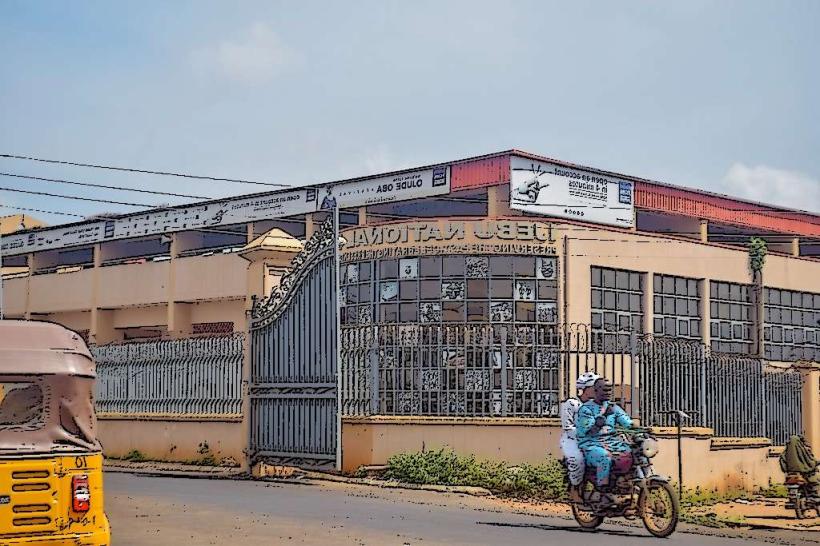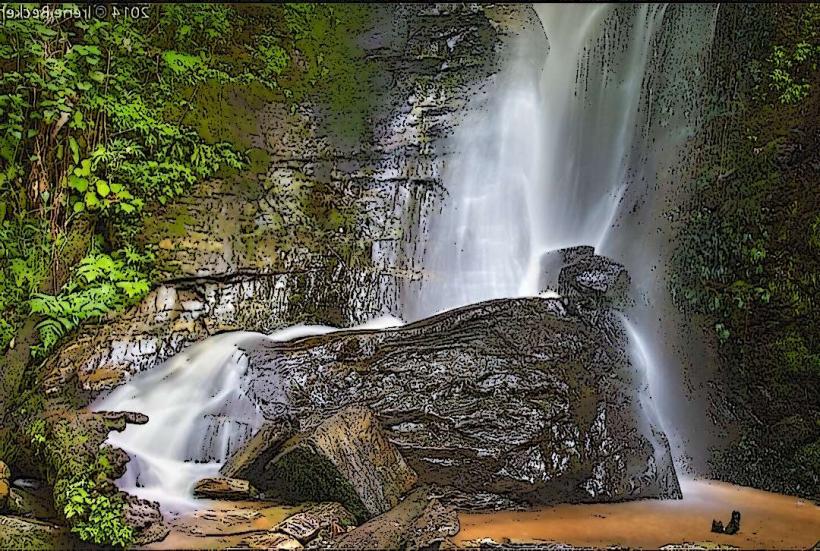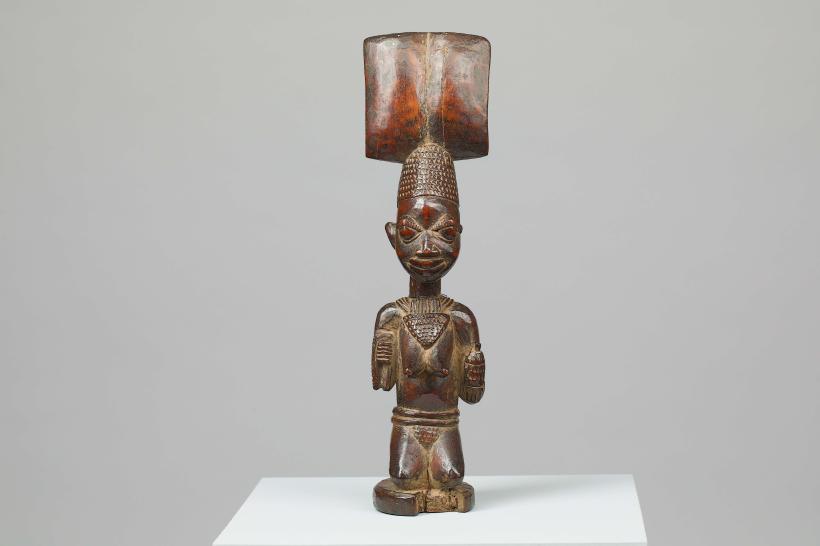Information
Landmark: Abeokuta National MuseumCity: Ogun
Country: Nigeria
Continent: Africa
Abeokuta National Museum, Ogun, Nigeria, Africa
The Abeokuta National Museum, also known as the Egba National Museum, is a significant cultural and historical institution located in Abeokuta, the capital of Ogun State, southwestern Nigeria. The museum plays a key role in preserving and presenting the cultural heritage of the Egba people, a subgroup of the Yoruba ethnic group. It is situated in the Idi-Aba area, specifically within the premises of Baptist Girls’ College, which adds to its educational setting.
Historical Context
The museum was established to showcase and protect the rich history and traditions of the Egba, one of the most influential groups in Yoruba history. Abeokuta itself, meaning "under the rock," was founded in the early 19th century by Egba refugees fleeing from warfare in Oyo. Over time, the city grew into a major center of political, spiritual, and cultural activity. The museum helps preserve this legacy.
Key Features and Collections
The museum contains a modest but meaningful collection of ethnographic, historical, and cultural artifacts:
Traditional Tools and Utensils: Implements used in farming, cooking, and crafts that tell the story of pre-colonial daily life.
Weapons and Defense Items: Spears, swords, and shields used by the Egba during wars and in self-defense, especially during the 19th century.
Cultural Artifacts: Items used in festivals, masquerade traditions, and indigenous religious practices.
Textiles and Clothing: Indigenous handwoven fabrics, traditional Yoruba attire, and ceremonial clothing.
Photos and Documents: Old photographs, colonial-era documents, and records that shed light on the transition from traditional governance to British colonial rule.
Each item is accompanied by descriptive labels, and guided tours are sometimes available to give deeper context to the artifacts.
Educational and Cultural Role
The museum serves several purposes:
Educational Center: It supports local schools and universities by offering practical exposure to Yoruba and Egba history.
Cultural Repository: It preserves fading traditions and helps the younger generation connect with their ancestry.
Research Hub: It welcomes scholars interested in Yoruba culture, Nigerian history, and African anthropology.
Visiting Experience
Opening Hours: Monday to Friday, 8:00 AM to 4:00 PM.
Closed on: Weekends and public holidays.
Entrance Fee: Generally low or symbolic; students may get discounts.
Visitors are advised to call ahead for current entrance fees or to book a guided tour. The museum is quiet and not heavily commercialized, offering an intimate and reflective experience.
Nearby Attractions
The Abeokuta National Museum is often included in broader cultural tours of the city:
Olumo Rock: Just a short drive away, this historic natural formation served as a fortress for the Egba during inter-tribal wars. It offers panoramic views of Abeokuta.
Alake’s Palace: Home to the Alake, the traditional ruler of Egbaland, with displays of royal artifacts and architecture.
Centenary Hall: Built in 1950 to commemorate 100 years of Egba settlement in Abeokuta, often used for civic events.
Summary
The Abeokuta National Museum is a compact yet deeply informative space dedicated to preserving the essence of Egba history and Yoruba culture. It’s ideal for historians, students, tourists, and anyone interested in learning about indigenous Nigerian civilizations through authentic artifacts and stories. Though not as large as the national museums in Lagos or Benin, its local focus and cultural significance make it a unique and valuable institution.

